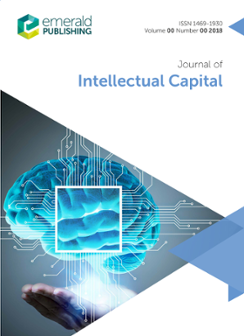COVID期间意大利医院CAOS:医疗无形资源分析
IF 6.8
2区 管理学
Q1 BUSINESS
引用次数: 1
摘要
目的本文旨在分析新冠肺炎期间关系资本(RC)和知识管理(KM)在意大利公立和私立医院中的作用,考虑到无形因素在不确定性时期至关重要。设计/方法/方法作者在对两家意大利医院的案例研究中使用了定性设计,这两家医院拥有不同的所有权结构,位于疫情的中心伦巴第。该研究使用CAOS(“cartteristiche personali”、“ambiente”、“organizazzazione”和“初创企业”)模型(Paoloni,2021)进行,由于影响组织的典型因素之间的联系,该模型允许理解和评论RC。该模型还允许讨论网络的使用及其如何支持组织。调查结果分析结果表明,在新冠肺炎突发卫生事件的管理过程中,所有权结构不是一个歧视因素,所建立的关系是相似的,它们是以相同的方式考虑的。这种关系主要是正式的(协会或个人的贡献除外)和临时的。RC在克服危机方面的反应作用得到了证实,调查结果表明,由于KM在组织内发挥的作用,这一结果也是可能的。原创性/价值这项工作的理论意义在于,它有助于稀疏的关于知识资本(IC)和RC及其与KM的关系的医疗保健文献。实际意义与在医疗保健紧急情况下医院和中央政府之间建立新的关系有关,这可以被视为对未来的有益教训。从分析中得出的理论含义可推广到所有组织,无论其类型和位置如何,而实际含义适用于整个国家领土。本文章由计算机程序翻译,如有差异,请以英文原文为准。
CAOS in Italian hospitals during COVID: an analysis of healthcare intangible resources
PurposeThis paper aims to analyse the roles of relational capital (RC) and knowledge management (KM) during the COVID-19 in Italian public and private hospitals, considering that intangible elements are essential during periods of uncertainty.Design/methodology/approachAuthors used a qualitative design in a case study on two Italian hospitals that have different ownership structures, which are located in the epicentre of the pandemic in Lombardy. The study was carried out using the CAOS (“caratteristiche personali”, “ambiente”, “organizzazione” and “start-up”) model (Paoloni, 2021), which allows for comprehending and commenting on RC because of the connections between typical factors that influence an organisation. The model also allows for discussion of the use of a network and how it supports organisations.FindingsFindings of the analysis showed that during the management of the COVID-19 health emergency, ownership structure was not a discriminating factor, the created relationships were similar and they were considered in the same way. The relationships were mainly formal (except for contributions by associations or individuals) and temporary. The RC's reactive role in overcoming crises was confirmed, and the findings indicated that this result was possible also, thanks to the KM's role played within the organisation.Originality/valueTheoretical implications of the work are that it contributes to the sparse healthcare literature on intellectual capital (IC) and on RC and its relationships with KM. The practical implications are related to the creation of new relationships during the healthcare emergency between hospitals and the central government, which can be considered a useful lesson for the future. The theoretical implications derived from the analysis are generalisable to all organisations regardless of their type and location, as well as the practical implications are applicable to the entire national territory.
求助全文
通过发布文献求助,成功后即可免费获取论文全文。
去求助
来源期刊

Journal of Intellectual Capital
Multiple-
CiteScore
14.50
自引率
13.30%
发文量
27
期刊介绍:
The Journal of Intellectual Capital is a peer-reviewed international publication dedicated to the exchange of the latest research and best practice information on all aspects of creating, identifying, managing and measuring intellectual capital in organisations. The journal publishes original research and case studies by academic, business and public sector contributors on intellectual capital strategies, approaches, frameworks, tools, techniques and technologies in order to increase the understanding of intellectual capital within the context of the modern knowledge economy. The focus of this journal is on the identification of innovative intellectual capital strategies and the application of theoretical concepts to real-world situations.
 求助内容:
求助内容: 应助结果提醒方式:
应助结果提醒方式:


